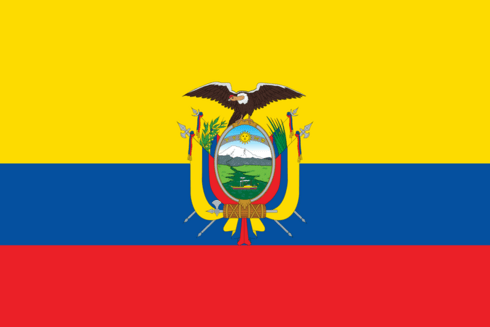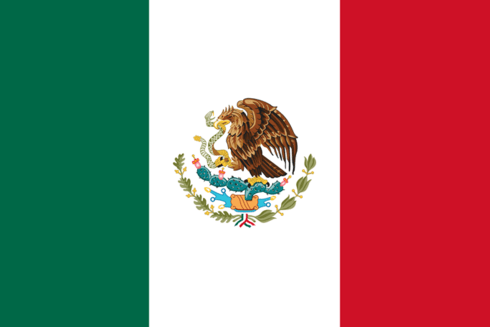

Pablo Valenti was a key figure in the digital transformation and modernization of the State in Latin America and the Caribbean. As Lead Specialist in State Modernization and Digital Strategies at the Inter-American Development Bank (IDB), he dedicated more than 18 years to leading projects that strengthened government digitalization and improved the efficiency of public services in the region.
A Uruguayan surveyor engineer with a Ph.D. in Technology Management from the Polytechnic University of Valencia, he stood out for his innovative vision and ability to integrate technology with public policy. He was a pioneer in promoting the development of interoperability platforms, digital government strategies, and digital health initiatives, always with a citizen-centered approach aimed at improving access, transparency, and the efficiency of public services. Before his career at the IDB, he played a pivotal role in Uruguay’s digital transformation, becoming one of the first presidential advisors on digital government in Latin America and the Caribbean. His work and leadership shaped the evolution of digital public administration in multiple countries throughout the region.
However, his legacy goes beyond his professional impact: his natural ability to support the professional growth of those who worked alongside him, his passion for innovation, his commitment to enhancing citizen services, and his vision of a more agile and accessible government continue to inspire generations of leaders and entrepreneurs in the digital field.

This initiative aims to transform territorial management in the province of Manabí, using advanced tools such as Geographic Information Systems (GIS) and artificial intelligence (AI) tools, including time series predictive models and machine learning algorithms.

This system, developed by the Municipal Secretariat in collaboration with private partners, optimizes urban management, strengthens city resilience, and establishes an exemplary model of data- and technology-based public policy.

The initiative aims to provide teachers and management teams with fast, real-time access to strategic information, eliminating technical barriers and streamlining decision-making. It allows for both predefined and customized inquiries in natural language, as well as advanced analysis through generative AI.

This initiative aims to integrate citizens' information and biometric data to facilitate procedures across various government agencies and entities. The system seeks to improve inter-institutional collaboration, optimize citizen services, and offer a Digital Identity that promotes interoperability, access to information, transparency, and administrative efficiency.

The initiative seeks to enhance the efficiency, transparency, and accessibility of municipal services by allowing citizens to carry out procedures and transactions virtually, track their progress, receive notifications, and access relevant documents — reducing the time and costs associated with in-person services.

The "Escobar 360" initiative streamlines access to municipal services and procedures through an agreement with the National Registry of Persons (Renaper) to use facial biometrics for digital identity verification.

Gloria Guerrero is an expert in artificial intelligence policy, civic technology, and multisector partnerships, with over ten years of experience leading digital transformation and civic innovation projects in Latin America, the United Kingdom, and Germany. As Executive Director of ILDA, she promotes inclusive development through data, technology, and human rights, and coordinates the Data for Development (D4D) network.
Gloria holds a degree in International Relations from Tecnológico de Monterrey and a Master’s in Public Policy from the Hertie School of Governance. She is a member of the advisory boards of the Global Index on Responsible AI, the FAIR SHARE Data Advisory Committee, and the Global Data Barometer, contributing to the development of global benchmarks on data governance and transparency.

Enrique is the Regional Specialist at UNDP’s Bureau for Latin America and the Caribbean, bringing over a decade of expertise in Project Management, International Development, Economic Development, Governance, and Innovation. He holds a degree in International Relations and Political Science from Universidad San Francisco de Quito and a master’s in public policy and administration from the London School of Economics. He is certified in Project Management by the Inter-American Development Bank and in Innovation by the KDI School of Public Policy and Management in South Korea.
Currently, Enrique is advancing digitalization and innovation at UNDP, having developed the Digital 4 Development Hub for the Latin America and Caribbean. He also serves as a professor of Political Science and International Relations at Universidad Hemisferios in Ecuador.

Natalia is an economist and technology policy specialist with over 10 years of experience working in government agencies and multilateral organizations on innovation policy, digital transformation, ethical data use, and emerging technologies. She currently serves as the expert coordinator of UNESCO’s Ethics and Artificial Intelligence (AI) agenda for Latin America, supporting the implementation of UNESCO’s Recommendation on the Ethics of AI with regional governments and the private sector.
Previously, she worked as a researcher at The GovLab at New York University (NYU), focusing on data and AI governance, and at the Inter-American Development Bank (IDB) as the coordinator of the fAIr LAC initiative, the region’s first partnership for the responsible use of technology in Latin America and the Caribbean. Natalia holds a degree in Economics and a Master’s in Economics from Universidad de Los Andes, Colombia, and a Master’s in Public Policy from Georgetown University.

Fernando Vargas is a Senior Specialist in the Competitiveness, Technology, and Innovation Division of the IDB, based in Buenos Aires, Argentina. He leads the IDB’s project portfolio in Argentina in the fields of science, technology, and innovation, and heads regional initiatives on Artificial Intelligence and the Space Economy within his division. He has extensive experience advising national agencies and multilateral organizations on the design of science, technology, and innovation policies. His research focuses on the measurement and analysis of innovation and productivity in companies.
Fernando holds a Master’s degree in Applied Economics from the University of Chile and is currently a Ph.D. candidate in Innovation, Economics, and Governance for Development at Maastricht University and the United Nations University (UNU-MERIT).

Javier Preciozzi is a founding partner of Digital Sense, a company specializing in Artificial Intelligence, where he also serves as one of its technical leaders. He earned his degree in Computer Engineering from the Universidad de la República (UdeLaR), Uruguay, in 2002, a master’s degree in Applied Mathematics from ENS Cachan (now Université Paris-Saclay), France, in 2005, and another master’s degree in Computer Science from UdeLaR in 2006. In 2016, he completed a Ph.D. in Electrical Engineering at UdeLaR.
For 10 years, he worked at Uruguay’s National Civil Identification Directorate (DNIC), where he served as Director of the IT Department for over four years. During that time, he was involved in all major technology modernization projects: the integration of an AFIS system into ID and passport issuance processes (2008), full computerization of remote offices (2011), implementation of the electronic ID card (2014), and the electronic passport (2015).
Since 2015, he has worked as an international consultant specializing in identification and biometric systems, with experience in Belize, Ecuador, El Salvador, The Bahamas, Haiti, the Dominican Republic, Jamaica, Costa Rica, Peru, and Uruguay.
Javier is also an Associate Professor at the Faculty of Engineering at Universidad de la República, where he teaches the courses "Machine Learning Workshop" and "Deep Learning for Computer Vision," and supervises undergraduate and master’s thesis projects in these areas.

Gianluca Ogis is a Swiss / Italian International Civil Servant specialized in International Affairs and Geopolitics. Following experiences with civil society organizations, the UN World Food Programme, and the Food and Agriculture Organization, he joined UNHCR in 2012 as a Programme Analyst. Soon after, he developed a strong interest in Registration and Identity Management, beginning with an intensive operational role during the emergency registration response to the Syrian Crisis in Lebanon. He subsequently advanced into corporate projects, contributing to UNHCR’s biometric systems and the broader Population Registration and Identity Management Ecosystem.
Gianluca has held positions in Mexico and regional roles based in Costa Rica and Colombia. Currently, he serves as the Senior Registration and Identity Management Officer at UNHCR’s Bureau for the Americas in Panama City. His key responsibilities include supporting governments in digitizing their asylum systems and facilitating the inclusion of forcibly displaced persons within national ID systems.

Since 2020, José Luis Hernández Carrión has served as a Digital Government Specialist at the IDB, based in Washington, D.C., where he advises and supports the digital transformation of the public sector in several countries across Latin America and the Caribbean. Previously, he was responsible for the digital transformation of Spain’s Ministry of Justice, overseeing the digitalization of courts, tribunals, public prosecutors’ offices, civil registries, as well as the Institutes of Legal Medicine and the National Institute of Toxicology and Forensic Sciences.
He holds an honors degree in Computer Engineering from Universidad Alfonso X el Sabio in Madrid. He has complemented this education with postgraduate programs such as Public Leadership at IE Business School, Executive Development at Universidad Carlos III, and the Leading in Artificial Intelligence program at Harvard Kennedy School. Additionally, he is certified in ITIL, PMP, TOGAF, COBIT, and DevOps.
